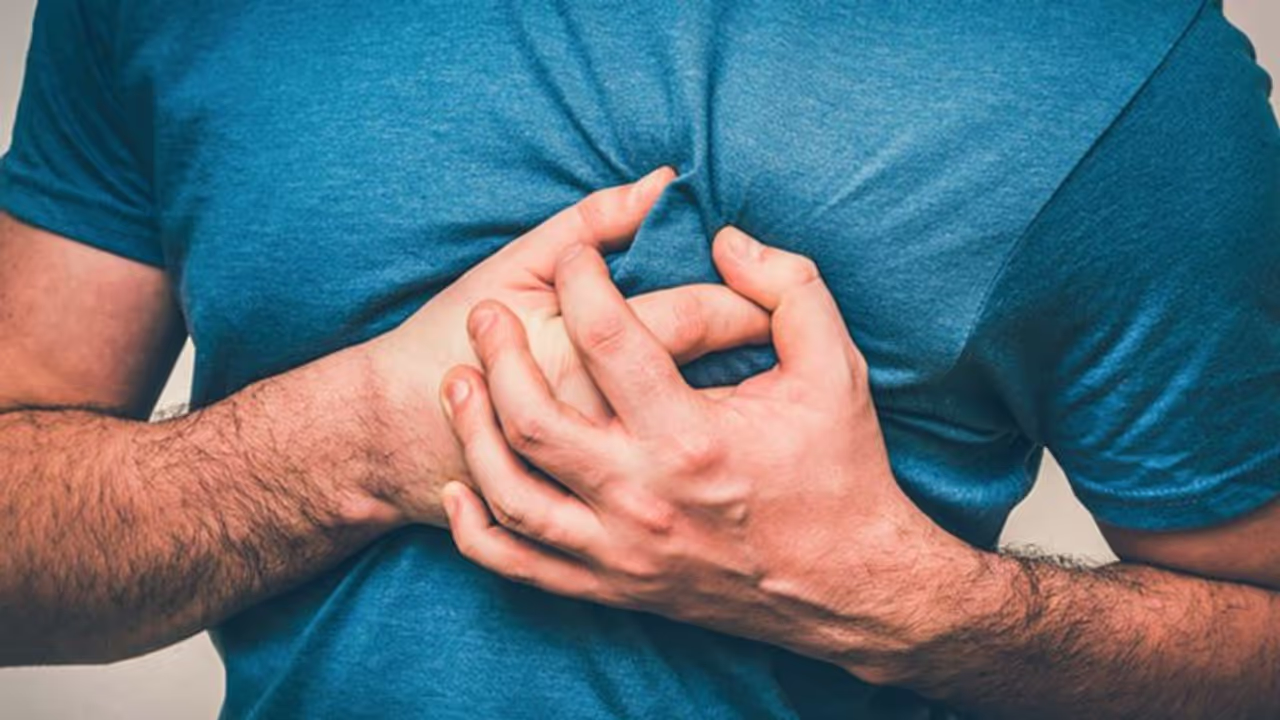Discomfort and chest discomfort are frequently misdiagnosed as acid reflux or gastroenteritis. However, it is critical to recognise that the reasons of chest discomfort can be complex, ranging from small concerns like muscular strain to life-threatening diseases like heart attacks.

Chest pain can originate from organs like the heart, lungs, esophagus, or chest wall components. Occasionally, nearby organs like the gallbladder or stomach can also cause chest pain. It can present with a range of symptoms, from sharp or dull pain, burning sensation, or the feeling of pressure, tightness, and squeezing. Discomfort and pain in the chest are often dismissed as acidity or gastritis. However, it is crucial to understand the causes of chest pain can be multifactorial, ranging from minor issues like muscle strain to life-threatening conditions such as heart attacks.
Understanding the causes of chest pain:
Chest pain causes are broadly classified as cardiac or heart-related chest pain and non-cardiac chest pain.
Heart-related causes of chest pain or Angina include:
- Angina Pectoris- Chest pain due to reduced blood flow to the heart due to narrowed coronary arteries.
- Heart Attack – Chest pain due to blocks and plaque ruptures in the coronary arteries leading to prolonged and intense chest pain.
- Variant Angina – Typically temporary spasms of coronary arteries, causing angina-like pain.
- Pericarditis: Inflammation of the heart membrane, causing chest pain aggravated by deep breathing, coughing, or sneezing.
- Myocarditis: Inflammation of the heart muscle with chest pain resembling angina.
- Heart muscle and Valve Problems - Conditions like hypertrophic cardiomyopathy, mitral valve prolapse and aortic stenosis can lead to chest pain.
- Aortic Dissection: Chest pain due to a tear in the inner wall of the aort
Also Read: What is Saree Cancer? Know about Squamous Cell Carcinoma (SCC)
Non- Cardiac causes of Chest Pain
- Chest wall muscle soreness due to strenuous activity or medical conditions like rheumatoid arthritis, fibromyalgia, and trauma.
- Conditions like GERD (acid reflux causing heartburn), esophageal spasm, motility disorders, and esophagitis (inflammation) can mimic angina.
- Gastrointestinal ulcers, gallbladder disease, pancreatitis, and irritable bowel syndrome
- Lung conditions such as pulmonary embolism, pneumonia, pleurisy (lung membrane inflammation), and pneumothorax (collapsed lung)
- Psychological stress including, panic disorder, depression, and hyperventilation
- Referred pain due to nerve supply overlap of different organs can cause pain due to associated pathologies
Differentiating the symptoms of cardiac causes of chest pain from non-cardiac causes with particular emphasis on acidity or gastric pain
- Chest pain due to cardiac causes or angina manifests as discomfort rather than sharp pain, feeling like squeezing, tightness, pressure, burning, or heartburn. Non-cardiac pain is often described as sharp or stabbing.
- Angina pain spreads throughout the chest, shoulders, or upper abdomen, while non-cardiac pain is localised to one side of the chest.
- Angina often radiates to the neck, throat, jaw, shoulders, arms, wrists, fingers, or back, whereas non-cardiac pain usually remains localised.
- Angina develops gradually over minutes, worsened by exertion and relieved by rest. Non-cardiac pain can occur suddenly, unrelated to exertion, lasting seconds to hours without significant change.
- Activities increasing physical exertion can trigger angina, often relieved by rest or nitro-glycerine. Non-cardiac pain may improve with eating, antacids, or positional changes.
- Angina or heart attack may present with additional symptoms like shortness of breath, nausea, sweating, rapid heart rate, fatigue, dizziness, fainting, palpitations, or abdominal discomfort. Left arm or shoulder tingling may occur.
- Chest pain due to acidity or gastritis typically manifests as a sharp, stabbing sensation in the chest and is often accompanied by bloating, belching, or flatulence. It tends to occur after consuming gas-producing foods or beverages and usually subsides on its own or with over-the-counter remedies.
Also Read: Potato to Green tea, 6 ingredients that can help remove dark circles
It is essential not to ignore chest discomfort, even if it seems mild or transient. Always rule-out life-threatening cause of chest pain before disregarding the symptoms as acidity, gastritis, or any other insignificant causes. Prompt action can make a significant difference in treatment outcomes.
-This article is authored by Dr. Saikat Kanjilal, Consultant Interventional Cardiologist, Manipal Hospital, Sarjapur Road, Bangalore
